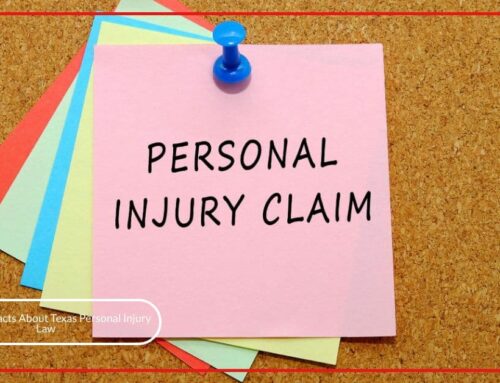 Car accident injury laws are designed to protect injury victims and ensure fair compensation for those injured in motor vehicle accidents. Understanding these laws is crucial for safeguarding your rights and easing the financial burdens associated with medical expenses, property damage, and other accident damages. Here’s a comprehensive overview of the key aspects, particularly focusing on Texas accident laws and how they affect involved parties.
Car accident injury laws are designed to protect injury victims and ensure fair compensation for those injured in motor vehicle accidents. Understanding these laws is crucial for safeguarding your rights and easing the financial burdens associated with medical expenses, property damage, and other accident damages. Here’s a comprehensive overview of the key aspects, particularly focusing on Texas accident laws and how they affect involved parties.
Statute of Limitations
In Texas, the personal injury statute of limitations for filing a personal injury claim resulting from an auto accident is generally two years from the date of the accident scene. According to Texas accident statutes, this means you have two years to initiate legal proceedings against the negligent driver or at-fault party. Failing to file within this timeframe may result in losing your right to seek maximum compensation.
Fault-Based System
Texas follows a fault-based system for car accidents. This means that the driver responsible for the accident is typically liable for the accident damages. Unlike no-fault states, Texas allows injury victims to seek financial compensation directly from the at-fault driver’s insurance provider or through a personal injury lawsuit with the help of an experienced car accident attorney or accident lawyer.
Comparative Negligence Rule
Texas uses a modified comparative fault rule, also known as proportionate responsibility. Under this rule:
- You can still recover damages even if you’re partially at fault for the accident.
- Your compensation will be reduced by your percentage of fault.
- If you’re found to be 51% or more at fault, you’re barred from recovering any damages.
This rule plays a significant role during settlement negotiations and when dealing with insurance adjusters.
Insurance Requirements
Texas law requires drivers to carry minimum liability insurance coverage:
- $30,000 for bodily injury per person
- $60,000 for bodily injury per accident
- $25,000 for property damage per accident
These insurance requirements are regulated by the Texas Department of Insurance. Failure to maintain this insurance policy can result in penalties, fines, and potential license suspension. Additionally, it’s advisable to consider Personal Injury Protection (PIP) and uninsured motorist coverage to protect yourself in case the at-fault party lacks sufficient insurance.
Types of Damages
In Texas, car accident victims can claim various types of damages, including:
- Medical expenses (past and future) for necessary medical treatments and medical care. Medical expenses can be significant, even with health insurance coverage.
- Lost wages and loss of earning capacity
- Property damage
- Pain and suffering
- Emotional distress and mental anguish
- Disfigurement
- Physical impairment
- Loss of consortium
- Non-economic damages
An experienced personal injury lawyer can help you pursue a claim for compensation to cover these damages and ensure you receive a fair settlement.
Reporting Requirements
Texas law mandates reporting a car accident if it results in injury, death, or property damage exceeding $1,000. The accident must be reported to law enforcement, and an accident report should be filed within 10 days of the incident. Failure to report a qualifying accident can lead to legal consequences, and the accident report can be crucial evidence in insurance claims and legal claims.
Seat Belt Laws
All occupants in a moving vehicle in Texas are required to wear seat belts. Children younger than eight must be secured in an appropriate child safety seat or booster seat unless they are taller than 4 feet 9 inches. Failure to comply can affect your ability to claim maximum compensation, as not wearing a seat belt can be considered negligence.
Claims Process
If you’re injured in a car accident in Texas, you have several options:
- Contact Your Insurance Company: File a claim with your own insurance agent.
- File a Third-Party Claim: With the at-fault driver’s insurance provider.
- File a Personal Injury Lawsuit: Against the at-fault driver.
During this process, initial consultations with accident attorneys or experienced car accident lawyers can provide valuable legal counsel. They can guide you through the legal landscape, help with accident investigations, and work with accident reconstruction experts to strengthen your case.
Legal Representation
While not required, it’s often advisable to consult with an experienced attorney or personal injury lawyer when dealing with car accident injury claims in Texas. An experienced car accident attorney understands the duty of care that all drivers owe to others on the road and can help establish negligence on the part of the at-fault party or negligent driver. They can navigate the complex legal process, negotiate with insurance adjusters, and ensure you receive fair compensation for injuries suffered. They can also represent you in legal proceedings if an accident lawsuit becomes necessary.
Uninsured/Underinsured Motorist Coverage
While not mandatory, it’s recommended to carry uninsured/underinsured motorist coverage in Texas. This protects you if you’re involved in an accident with a driver who doesn’t have insurance or doesn’t have enough coverage to pay for your damages. Hit-and-Run Accidents are also covered under this type of insurance policy.
Conclusion
Understanding these accident laws is crucial for protecting your rights and ensuring you receive fair compensation if you’re injured in an auto accident in Texas. Remember that each case is unique, and specific circumstances may affect how these laws apply to your situation. Consulting with experienced legal counsel can help you navigate the complexities of the legal landscape and alleviate financial burdens resulting from medical expenses, loss of income, and other accident damages.
What Are the Most Common Types of Injuries in Texas Car Accidents?
Texas motor vehicle accidents can result in a wide range of injuries, varying in severity depending on factors like the speed of impact, use of safety equipment, and the extent of injuries sustained. Injury victims may suffer from the following common types of injuries:
1. Head and Brain Injuries
These can range from concussions to more severe traumatic brain injuries (TBIs). TBIs can affect cognitive function, sleep patterns, and even personality, leading to significant emotional distress.
2. Neck and Back Injuries
Whiplash is one of the most common car accident injuries, especially in rear-end collisions. It involves a sudden jerking movement of the head and neck, causing pain and stiffness. Spinal cord injuries can also occur, potentially leading to partial or complete paralysis.
3. Spinal Cord Injuries
These injuries can be particularly severe, potentially resulting in permanent disability. Even less severe spinal injuries can result in chronic pain and limited mobility, affecting the victim’s quality of life.
4. Chest and Rib Injuries
These often occur due to impact with the steering wheel, dashboard, or seatbelt. Broken ribs and internal injuries may require extensive medical attention and prolonged medical treatments.
5. Abdominal and Pelvic Injuries
These can be either blunt force injuries or penetrating injuries, causing internal bleeding and damage to organs. Immediate medical care is essential to prevent life-threatening complications.
6. Leg, Knee, Foot, and Ankle Injuries
Common knee injuries include damage to the Anterior Cruciate Ligament (ACL) and Posterior Collateral Ligament (PCL). These often result from impact with the dashboard or steering column. Foot and ankle injuries are particularly common in head-on collisions, with studies showing that 75% of such injuries occur in frontal impacts.
7. Psychological Injuries
Post-Traumatic Stress Disorder (PTSD) is a common psychological injury following car accidents. Many victims experience significant emotional and mental distress, which can be considered non-economic damages in a personal injury claim.
In the unfortunate event of a fatal accident, the family members of the deceased may pursue a wrongful death claim to seek financial compensation for their loss.
It’s important to note that while some injuries are immediately apparent, others may take days or even weeks to manifest symptoms. Therefore, seeking prompt medical attention after an accident is crucial, not only for your health but also for supporting your accident claims.
An experienced car accident attorney or accident lawyer can help injury victims understand their rights and pursue maximum compensation for their injuries. They can assist in gathering police reports, vehicle registration information, and other evidence necessary for building a strong personal injury claim.
